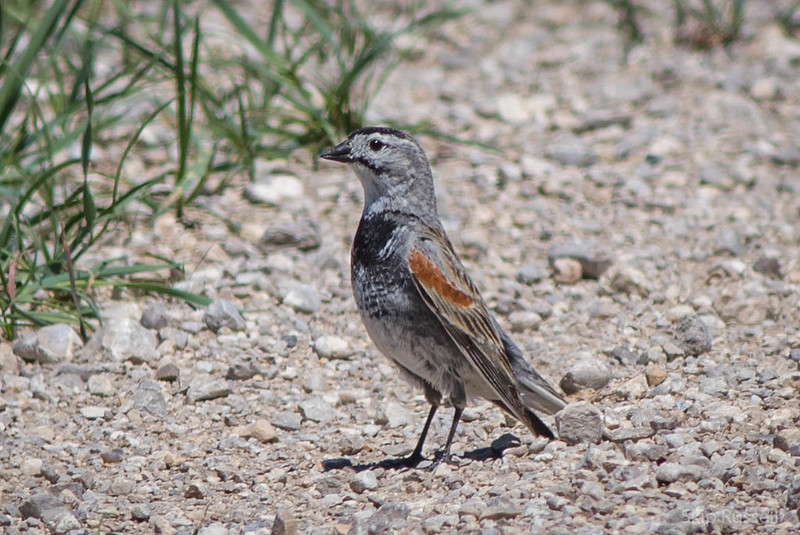
On August 7, the American Ornithological Society’s North American Classification Committee, the body in charge of official taxonomy and common name choices for North American birds, changed the name of the McCown’s longspur to the thick-billed longspur.
No big deal, you might say — the names of birds, and other species, are changed frequently.
But this time it is a big deal, because of the reason for the change. Usually changes respond to reconsideration of taxonomic relationships — new names are added when species are split, or chosen when multiple species are lumped into one, for example. In this case, though, the change was made because the organization agreed that it was no longer appropriate for the species to bear John P. McCown’s name.
McCown was posted to the Rio Grande region as a US Army officer in the mid-19th century. He made a habit of collecting birds (if it’s not obvious in today’s context, that means he shot them), which he sent to distinguished ornithologists for identification. Several were new species, including the longspur that was named after him.
Again you might say no big deal — it has been common practice since the invention of taxonomy to name species after those who first describe them, or provide examples for description.
That established naming practice may be problematic, however, in significant part because those honored with species names are not always deserving of honor.
McCown, a West Point graduate, served in the Mexican-American War and, according to the original petition submitted to change his eponymous longspur’s name, led campaigns against Native American tribes. Whatever one thinks of those conflicts, as a junior officer it doesn’t seem to have been McCown’s choice to pursue them. But in 1861 he made a clear choice, resigning his US Army commission to join the Confederate Army, where he eventually rose to the rank of Major General. He is, according to the petition, “the only individual who had a bird named in his honor and also served in the Confederate Army during the Civil War.”
Over the last two decades, the NACC has changed common names it deemed derogatory to groups of people, but this is the first time it has changed an eponymous name because of the symbolic message it communicated.
The process was hardly smooth or easy; the Committee rejected the first petition last year, with members commenting that they were uncomfortable dealing with this one name in isolation, and “judging historical figures by current moral standards.” Widely publicized incidents of racism this year, including the “birding while black” harassment of Christian Cooper in New York’s Central Park, appear to have changed the Committee’s collective mind. A supplemental proposal submitted in July was quickly accepted.
The American Ornithological Society has also announced that it is working on a new policy to govern common names (although it seems to have missed its self-imposed deadline for finalizing that policy).
Which brings up several questions.
First, is there any reason other than habit to keep eponymous common names? After all, in general they honor Europeans who were decidedly not the first to see, recognize the values of, or name birds of North America and other regions of the globe. Moreover, if common names are intended to be helpful or easy to remember, those that describe the bird, its habitat, or its range seem preferable. As a casual birder myself, I certainly find names like “yellow-rumped warbler” easier to remember and associate with the correct bird than those like “MacGillivray’s warbler.”
Second, should there be a more proactive process at the Society level to reform names, rather than putting the onus on individuals to propose changes one species at a time?
Third, what about scientific or Latin names? Those are used by smaller groups, mostly specialists in the field, so perhaps they do not have the same symbolic currency, but they are just as much “verbal statues” to those honored.
And finally (I’m sure there are answers to this one, I just don’t know them), how are other naming bodies approaching these questions, which of course are not limited to birds?
The post Another form of environmental justice: updating species names appeared first on Legal Planet.
By: Holly Doremus
Title: Another form of environmental justice: updating species names
Sourced From: legal-planet.org/2020/08/15/another-form-of-environmental-justice-updating-species-names/
Published Date: Sat, 15 Aug 2020 19:41:22 +0000
Vist Maida on Social Me
Website Links
Maida Law Firm - Auto Accident Attorneys of Houston, by fuseology
No comments:
Post a Comment